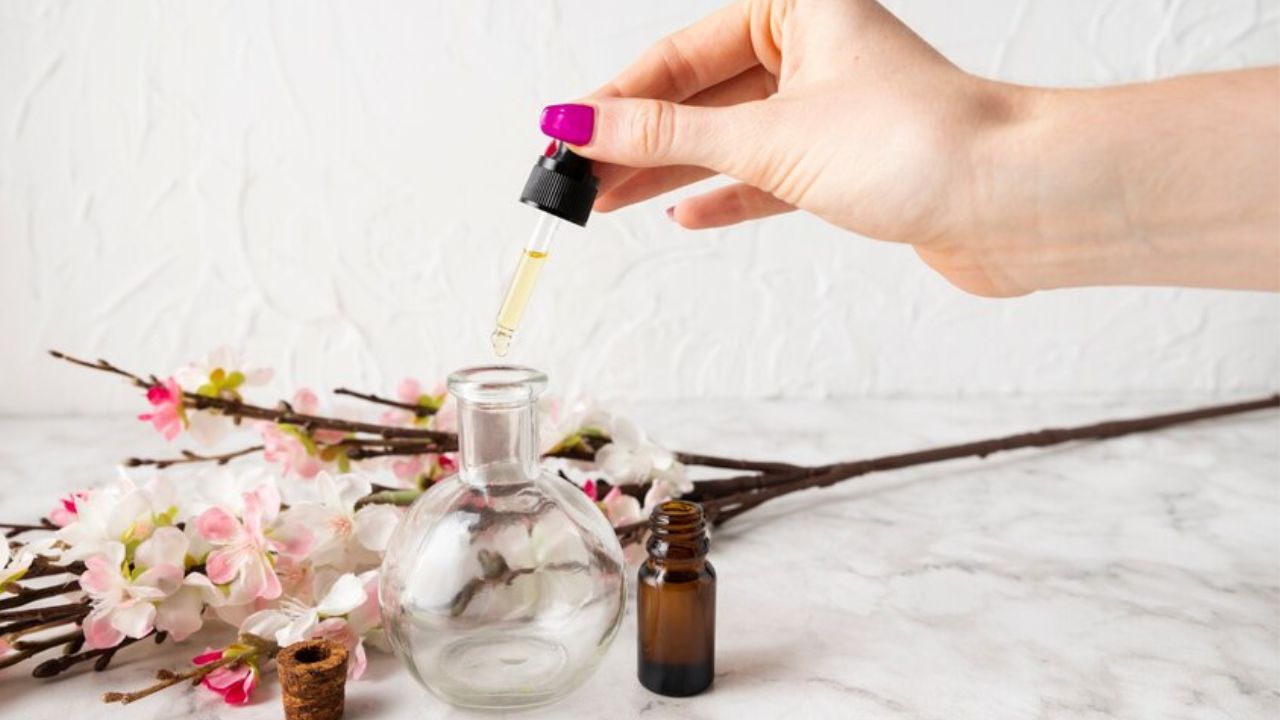Health
Benefits of Saffron: Unveiling the Health Benefits of This Precious Spice

Known as “red gold,” saffron is one of the world’s most valuable and sought-after spices. For millennia, people have valued its delicate threads for their distinct flavor, vivid color, and Benefits of Saffron and several health advantages. Let’s examine the many ways this opulent spice can improve your life as we delve into its charms.
Nutritional Profile of Saffron
Despite its diminutive size, saffron is incredibly nutritious. It has several important vitamins and minerals in it, such as magnesium, potassium, and vitamin C. Safranal, picrocrocin, and crocin are some of the special compounds found in saffron that add to its health-promoting qualities.
<strong>Health Benefits of Saffron
Boosts Mood and Treats Depression
Enhancing mood and reducing symptoms of depression is one of saffron’s most well-known advantages. Safranal and crocin, two chemicals found in saffron, are thought to raise serotonin levels in the brain in a manner akin to that of antidepressants. Saffron is a natural option for mild to moderate depression that is worth taking into consideration, as evidenced by a number of studies that demonstrate its effectiveness in comparison to traditional treatments.
Improves Eye Health
Saffron is good for your eyes as well. Antioxidants included in it, such as crocin, help shield the retina and impede the advancement of age-related macular degeneration (AMD). Regular saffron consumption has been associated with enhanced eyesight and retinal function, making it a beneficial dietary supplement for preserving eye health.
Enhances Memory and Cognitive Function
Recent studies indicate that saffron might have neuroprotective properties. According to studies, saffron can improve memory and cognitive function, which may be advantageous for people who have Alzheimer’s disease or other cognitive impairments. Its antioxidant qualities promote general brain health by preventing damage to brain cells.
Supports Heart Health
Saffron’s antioxidants are essential for preserving heart health. They aid in lowering inflammation and oxidative stress, two important factors in heart disease. Saffron can also help lower blood pressure and cholesterol, which will help to further improve cardiovascular health.
Aids in Weight Loss
Saffron may be of assistance if you’re trying to lose weight. It has been demonstrated to lessen snacking and lower appetite, both of which can aid in weight loss. The mood-boosting properties of saffron also aid in lowering emotional eating, which makes maintaining a balanced diet simpler.
<p><strong>Skin and Hair Benefits of Saffron
Skin Glow and Brightening
Saffron is a potent ally for your skin because of its anti-inflammatory and antioxidant qualities. It can help your skin look beautiful, ease inflammation, and lessen redness. The usage of saffron in skincare products is growing in popularity due to its potential to improve skin texture and brighten the face.
Treats Acne and Blemishes
Saffron works well to treat pimples and acne because of its antimicrobial qualities. By removing germs from the pores, it lessens breakouts and encourages skin that is clearer. Furthermore, the therapeutic qualities of saffron help to reduce the appearance of blemishes and scars, giving your skin a more radiant, balanced appearance.
Promotes Hair Growth
Saffron may provide some comfort for persons experiencing hair loss. Because of its high antioxidant content, it strengthens hair follicles and encourages the creation of new hair. Saffron can help prevent hair loss and enhance the general health and appearance of your hair when used regularly.
Culinary Uses of Saffron
Around the world, saffron is a favorite in many kitchens due to its distinct flavor and color. It can be found in both savory and sweet recipes. Paella, risotto, and sweets flavored with saffron are popular recipes. Use saffron moderately in your cooking to prevent dominating the flavor of your food. To fully extract the flavor and color of saffron threads, soak them in warm water or milk before using them in recipes.
How to Select and Store Saffron
Look for strong-smelling, deep-red threads when choosing saffron. Saffron of superior quality should be crumbly but not dried. To keep saffron’s flavor and strength for as long as possible, store it in an airtight container away from light and moisture.
Conclusion
Saffron has a wealth of health advantages and is not just a fancy spice. Saffron offers many benefits, including elevating mood, improving mental clarity, and supporting heart health and radiant skin. Your general well-being will noticeably improve if you include this priceless spice in your skincare and eating regimen.
FAQs
What is the recommended daily dosage of saffron?
Usually, 30 mg is the recommended daily intake of saffron. For individualized guidance, it’s advisable to speak with a healthcare professional.
Can saffron be used during pregnancy?
Pregnant women should see a doctor before using saffron, even though small dosages are usually safe. High levels can have negative effects.
Are there any side effects of consuming saffron?
Most people can safely use saffron if they use it in moderation. On the other hand, adverse consequences like nausea, dizziness, and allergic responses might result from overindulging.
How can I tell if my saffron is pure?
Pure saffron is a rich crimson color with a potent scent. A golden-yellow color should emerge when submerged in water. It can be contaminated if it becomes bright red or loses its scent.
Can saffron help with anxiety?
Yes, studies have indicated that saffron can lessen anxiety symptoms. Its ability to elevate mood can encourage relaxation and a sense of well-being.
Health
Benefits of Laurel Leaf Tea: The Ultimate guide

Laurel leaf tea is often overlooked as a natural remedy, yet it offers numerous potent health benefits. Brewed from bay laurel leaves, this fragrant tea provides powerful healing properties. Laurel leaf tea, long prized for its medicinal qualities in Mediterranean countries, is currently becoming more and more well-known worldwide. Let us explore the amazing advantages that this straightforward brew provides.
Rich in Antioxidants
Antioxidants, which are abundant in laurel leaf tea, are essential for shielding your cells from harm brought on by free radicals. Free radicals, unstable chemicals, contribute to cancer, heart disease, and other chronic illnesses. Regular consumption of Laurel Leaf Tea Benefits to helps counteract these toxic chemicals and supports optimal health for your body.
Supports Digestive Health
Experiencing bloating or experiencing dyspepsia? Laurel leaf tea could be the perfect calming solution for you. Laurel leaves include chemicals that aid with digestion, like cineol and eugenol. These substances facilitate easier digestion, lessen flatulence, and help break down food. After a large meal, this tea is often used by people to soothe their tummies and aid with digestion.
Boosts Immune System
This tea is a great way to support your immune system because of the laurel leaves’ antiviral and antibacterial qualities. Regular consumption may lower your risk of contracting common illnesses like the flu or colds. In addition to being rich in immune-boosting vitamins and minerals, laurel leaves also assist your body fight off infections more successfully.
Anti-inflammatory Properties
Laurel leaf tea can provide some help if you have illnesses like arthritis or persistent inflammation. The anti-inflammatory properties of the essential oils and antioxidants found in the leaves aid to lessen discomfort and swelling. Many individuals use laurel leaf tea as a natural way to treat the symptoms of inflammatory disorders.
Helps Regulate Blood Sugar Levels
Laurel leaf tea can help people with diabetes or prediabetes by adding it to their daily routine. According to studies, several of the chemicals found in laurel leaves may help control blood sugar levels. This suggests that consuming tea made from Laurel leaves may help avoid blood sugar rises, making it a possible natural diabetes treatment.
Improves Heart Health
Improved cardiovascular health has been associated with laurel leaf tea. The tea’s antioxidants and other health-promoting ingredients may lower bad cholesterol, enhance blood flow, and stave off heart disease. This tea has been shown to support heart health, which may lead to a longer, healthier life.
Conclusion
A little-known treasure in the field of herbal treatments is laurel leaf tea. This tea enhances digestion and lowers inflammation, among its many health advantages. It is an easy, all-natural approach to improve your health, and you will love adding its fragrant aroma to your daily routine.
FAQs
Can I drink laurel leaf tea every day?
Yes, drinking laurel leaf tea on a daily basis is generally harmless, but moderation is essential.
Does laurel leaf tea help with weight loss?
Although it might help with digestion, there is not enough data to say that it will significantly help with weight loss.
How do I make laurel leaf tea?
Just steep two to three dried laurel leaves in a ten-minute steep of hot water.
Are there any side effects?
For most individuals, laurel leaf tea is safe, but if you drink too much, you can have headaches or nausea.
Can pregnant women drink laurel leaf tea?
Pregnant women should ideally speak with a healthcare provider before ingesting laurel leaf tea.
Health
The Soothing Science of Aromatherapy: Harnessing Nature’s Fragrant Remedies

The Soothing Science of Aromatherapy is a time-honored method that improves mental, emotional, and physical health. Aromatherapy uses the natural scents of plants to influence our bodies and brains.Examples of this include the relaxing scent of lavender before bed and the energetic aroma of peppermint in the morning. Consequently, many people turn to this holistic therapy for relief from contemporary stress. But what exactly is the mechanism of action behind this approach, and why does it attract so many seeking stress relief?
What is Aromatherapy?
The Soothing Science of Aromatherapy highly concentrated plant extracts called essential oils to provide therapeutic effects. They can diffuse these oils into the air, apply them physically, or inhale them to create a specific atmosphere or mood.Every plant part, including the flowers, leaves, bark, and roots, can provide essential oils, each with a unique set of benefits. Essential oils can have significant impacts on the mind and body, ranging from increasing energy to lowering anxiety.
How Does Aromatherapy Work?
The skin’s ability to absorb essential oils contributes to aromatherapy’s effectiveness. Applying diluted versions of oils like eucalyptus or tea tree can help with bodily problems like respiratory disorders or tense muscles. The skin absorbs their ingredients and carries them into the bloodstream, providing benefits beyond a pleasing aroma.
Key Benefits of Aromatherapy
Numerous advantages of aromatherapy exist for both physical and mental well-being:
Reduces Stress and Anxiety
Essential oils like rose, chamomile, and lavender are well known for their relaxing properties. Diffusing these oils around your house or place of business can help you relax naturally by lowering tension and anxiety.
Boosts Energy Levels
Improves Sleep Quality
Essential oils like lavender, sandalwood, and frankincense can help create a calm environment that encourages deep, restful sleep if insomnia is your daily battle. Before going to bed, a few drops in a diffuser can have a significant impact.
Relieves Physical Pain
Anti-inflammatory qualities found in essential oils like eucalyptus and peppermint help relieve headaches, tight muscles, and even arthritis pain. These oils are frequently used by massage therapists to augment the therapeutic benefits of a massage.
How to Incorporate Aromatherapy Into Your Life
Aromatherapy can be incorporated into your everyday routine in a number of ways:
Diffusion: A diffuser for essential oils can be used to fill a room with aromas. This is the ideal way to infuse energy or create a peaceful environment while at work.
Inhalation: You can instantly improve your mood or reduce tension by just taking a deep breath from the bottle or dabbing some oil onto a piece of paper.
Topical Application: People can apply essential oils topically to the skin after diluting them in a carrier oil, such as coconut or jojoba, to ease physical discomfort or promote skincare.
Conclusion
Using aromatherapy is an easy and natural approach to enhance your general health by using the healing properties of plants. Whether you are looking for more energy, better sleep, or stress reduction, essential oils can provide a customized answer. Aromatherapy has many uses and calming effects, making it a must-try for anybody looking for natural health improvements.
FAQs
What is aromatherapy?
In aromatherapy, a holistic therapeutic modality, people use essential oils derived from plants through topical application or inhalation to enhance mental, emotional, and physical well-being.
How does aromatherapy help with stress?
Essential oils that influence the limbic system of the brain, which controls emotions, such as lavender and chamomile, offer relaxing qualities that help lower tension and anxiety.
Can aromatherapy improve sleep?
Yes, people commonly use oils like lavender and sandalwood to encourage relaxation, making it easier to fall asleep and achieve deeper sleep.
Is aromatherapy safe for everyone?
Although aromatherapy is generally harmless, those who have sensitive skin, allergies, or asthma should exercise caution. Before using essential oils topically, always dilute them and conduct a patch test.
How can I use essential oils at home?
Health
The Importance of a Gut Health Check: Why You Shouldn’t Ignore Your Gut

The Importance of a Gut Health Check influences your general health, but how often do you consider it? To ensure your digestive system functions properly, get a gut health check. Your gut plays a crucial role in more than just digesting food; it also affects your immune system and mental health. So, how can you listen to your intuition, and why is it important?
What is Gut Health?
Gut health refers to the equilibrium and functionality of the microbes residing in your digestive system. The bacteria commonly referred to as gut flora or gut microbiome are essential for proper digestion, absorption of nutrients, and immune system function. A healthy gut may prevent infections, control stress, and elevate your mood. However, when things go wrong, they can cause a variety of problems, including chronic diseases, inflammation, and bloating.
Signs Your Gut Health Might Be Off
Digestive Issues: Constipation, diarrhea, bloating, or gas may be signs of an unbalanced gut.
Frequent Illness: A weak stomach may be the cause of recurring colds or other diseases.
Mood Swings and Anxiety: A person’s mental health can be impacted by their gut health, as there is a strong correlation between the two.
Food Intolerances: An unhealthy gut may be the cause of discomfort while eating particular foods.
Skin Problems: Unbalances in the stomach can be linked to conditions like eczema and acne.
How to Perform a Gut Health Check
Evaluate Your Diet: Your gut may suffer from a diet heavy in processed foods, sweets, and poor in fiber. Following a meal, if you experience bloating or pain, your gut may not be working properly.
Track Your Digestive Patterns: Consider how frequently you have diarrhea, constipation, or irregular bowel movements. These may serve as important markers for gut health.
Monitor Your Energy Levels: Are you constantly tired? You may feel exhausted if you are unable to absorb vital nutrients due to poor gut health.
Use At-Home Testing Kits: A number of gut microbiome testing kits are now on the market that can tell you how healthy your gut is. These tools detect the bacteria in your stomach by analyzing your poo and offer helpful advice.
Ways to Improve Your Gut Health
Increase Fiber Intake: Whole grains, fruits, and vegetables are high in fiber and nourish the good bacteria in your stomach.
Eat Fermented Foods: Probiotics included in foods like yogurt, kimchi, and sauerkraut aid in the restoration of gut flora.
Stay Hydrated: Water consumption is crucial for digestive processes and gut lining health.
Manage Stress: Gut health can be adversely affected by ongoing stress. Deep breathing, meditation, and consistent exercise are among the techniques that help improve digestive and mental health.
Conclusion
Maintaining your general wellbeing as well as the health of your digestive system requires The Importance of a Gut Health Check Effective strategies to maintain gut health include changing your diet, listening to your body’s signals, and perhaps seeking medical advice. Recall that you are only as healthy as your stomach is.
FAQs
What are the signs of poor gut health?
Bloating, gas, diarrhea, constipation, recurrent infections, and even mood changes are common symptoms.
How can I improve my gut health?
Eating more fermented and fiber-rich foods, drinking enough of water, and controlling your stress levels can all help to enhance gut health.
What foods are bad for gut health?
Foods high in sugar, processed foods, and poor in fiber can all have a detrimental effect on gut health.
Can poor gut health affect my mental well-being?
Indeed, there is evidence linking gut health to mood disorders such as depression, anxiety, and others.
Is a gut health check necessary?
Yes, routinely monitoring your gut health can aid in preventing digestive problems and promoting general wellbeing.
-

 Celebrity12 months ago
Celebrity12 months agoJulia Rejean Moorhead: A Trailblazer in Her Field
-

 News12 months ago
News12 months agoThe Ever-Evolving World of News:Global Events Unfolding Today
-

 INFORMATION12 months ago
INFORMATION12 months agoUnderstanding Information: Its Role and Impact in Our Lives
-

 Sports12 months ago
Sports12 months agoGonzaga Basketball: The Rise of a College Hoops Powerhouse
-

 Sports12 months ago
Sports12 months agoThe Incredible Benefits of Sports: Boost Your Life on All Fronts
-

 Business12 months ago
Business12 months agoRogue Trader Rotate Grand Strategist:The Dynamic World of Trading
-

 Health12 months ago
Health12 months agoThe Ultimate Guide to Health: Tips and Strategies for a Healthier
-

 Technology9 months ago
Technology9 months agoFascinating Facts About Astronauts:The Ultimate Guide
